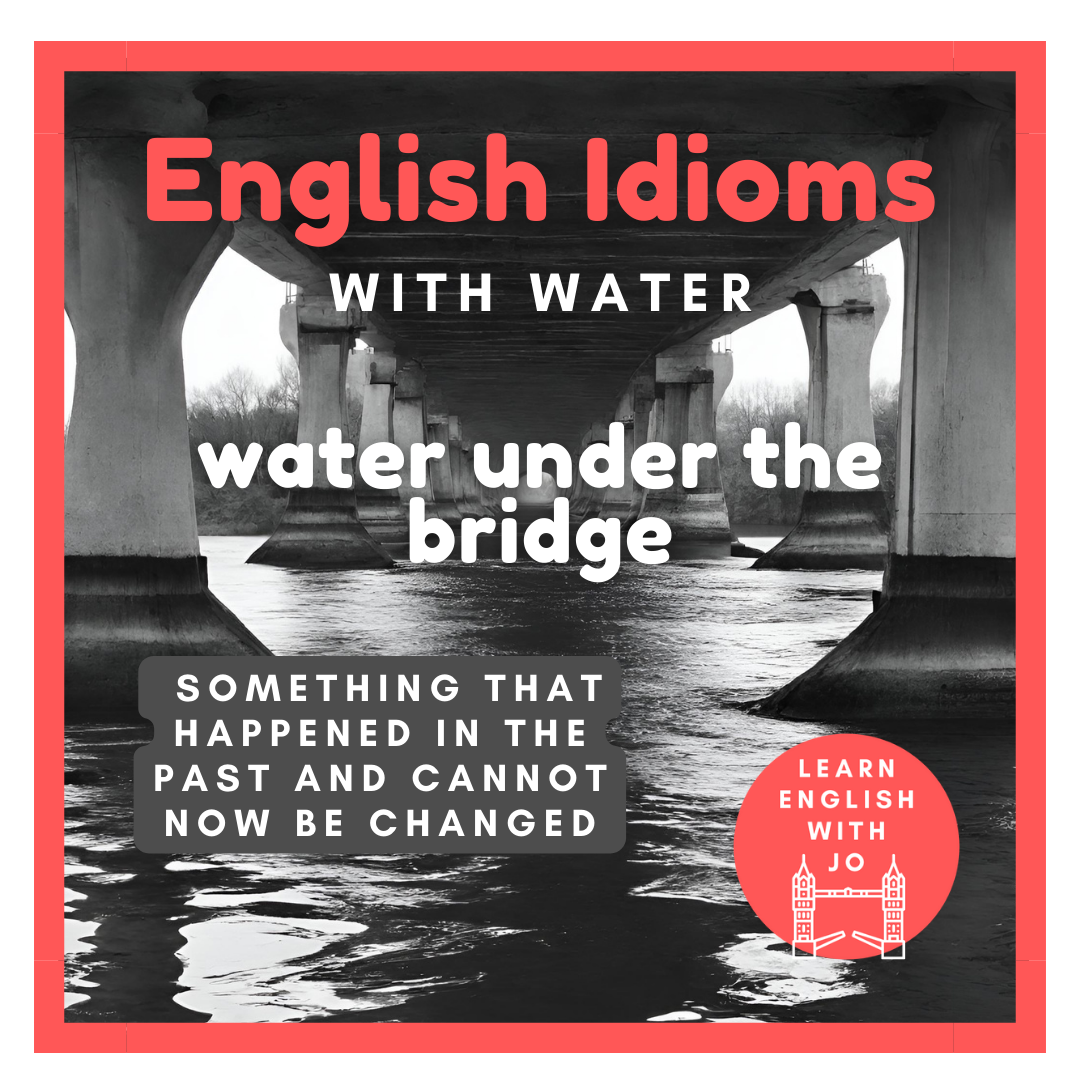English idioms about water (with meanings and examples)
If you’re learning English as a second or foreign language, idioms can be tricky.
An idiom is a phrase or expression that typically presents a figurative, non-literal meaning, different from the individual meanings of the words it contains. Idioms are often deeply ingrained in a language and may not make sense when interpreted word by word. Instead, they convey a specific cultural or contextual meaning.
This means making senses of English idioms can be a problem and using them in conversations can feel daunting.
It’s really not necessary to learn lots and lots of English idioms. I usually suggest that if my students come across an idiom that they particularly like then to make a note of it, and pay attention to how and when it is used. Then, I encourage students to have a go at throwing it into an informal conversation.
So, let's explore five idioms related to water, unraveling their meanings and usage to help you dip your toe into the vast ocean of English language nuances.
Remember to make a note of any that you think might be useful in your life and if you’d like to book a conversation class with me to practice your spoken English then use the link below to book a class.
Would you like to improve your confidence in speaking English in 2024? Book a trial English conversation class with me via my profile on italki or drop me a message.
Sign up to italki and you will receive $10 italki credits in your student wallet within 48 hours of making you first purchase
Dip Your Toe in the Water
Imagine wading into a refreshing lake. You wouldn't dive straight in, right? This idiom perfectly captures that cautious first step. It means to start something slowly and carefully, especially if you're unsure about it. For example, ‘I'm thinking of dipping my toe in the water with online dating.’
Dead in the Water
This idiom doesn't mean literal death, but it describes something that's completely stopped or failed. Imagine a stalled engine on a calm sea – hope fades, things don't move. ‘My presentation plan fell through – that project is dead in the water.’
Water Under the Bridge
This expression is used to refer to something that is in the past, forgotten and no longer relevant or significant. Just like water flowing under a bridge, which cannot be retrieved, the phrase ‘water under the bridge’ implies that whatever happened is in the past and old news. It's a useful idiom for expressing forgiveness and a willingness to move forward. ‘We had arguments, but it's water under the bridge now.’
To pour cold water on something
This idiom perfectly describes someone dampening enthusiasm. Imagine pouring a bucket of icy water on a bonfire – the flames dwindle, enthusiasm cools. When a person discourages you from doing something or dismisses an idea or plan, they are pouring cold water on your excitement.
For instance, if you share an exciting business proposal and someone responds with skepticism, they are pouring cold water on your plans.
‘My boss poured cold water on my promotion idea.’
To be in hot water
This idiom might make you envision someone standing in a pot of boiling water, metaphorically conveying trouble or being in a difficult situation. ‘To be in hot water’ means to be in trouble or facing consequences for something you've done. If you forget an important meeting, you might find yourself in hot water with your boss.
By exploring these water-themed idioms, you're not just learning the words but also gaining insight into the cultural nuances and subtleties of the English language. Remember, like water, language is fluid, ever-changing, and full of surprises!





